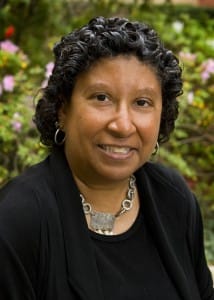by Yael Levin
Racism has a long history in the United States, from slavery in the 18th and 19th centuries through Jim Crow laws in the 20th century.
After these laws were struck down, many Americans believed that racism was no longer a problem. Particularly after President Barack Obama’s election in 2008, it seemed to many as though the U.S. had overcome racism.
But the recent murders of Trayvon Martin, Eric Garner and nine African Americans at a bible study class in Charleston, S.C., warn that this may not be a good assumption.

African American men in the U.S. have the shortest life expectancy of any race or gender. The average life expectancy for African American males is 71 years old. In a study by the McArthur Network on Aging, they found that white men with 16 or more years of schooling can expect to live an average of 14 years longer than African American men with fewer than 12 years of education.
Chronic health problems and chronic stress are major factors in poor health and early mortality.
But a less-researched contributing factor to chronic stress, and consequently mortality, is racism.
Most African American men who live beyond age 60 suffer from at least one chronic medical condition, and many suffer from more than one, according to the Centers for Disease Control and Prevention. The mortality rate for African Americans is highest of all groups for eight out of the 15 leading causes of death.
Dr. Vickie M. Mays, a clinical psychologist and professor of health policy and management at UCLA, has published a number of studies showing how experiencing racism contributes to high morbidity and mortality in African Americans.
Mays said she is concerned that not enough attention is paid to the lethal consequences of discrimination African American men face every day. She is currently interviewing African American men as young as 40 and over 65 who have experienced some of the worst forms of racism but yet are still alive and even in good health.
Dr. Vickie M. Mays, a clinical psychologist and professor of health policy and management at UCLA, has published a number of studies showing how experiencing racism contributes to high morbidity and mortality in African Americans.
Mays, who is also the director of the UCLA BRITE Center – Bridging Research Innovation, Training and Education for Minority Health Disparities Solutions – said race-based discrimination is an everyday occurrence for many African American men, such as being watched while in stores, walking along the street and having someone cross the street in fear of them to being pulled over by the cops.
“While cell phones have captured the most egregious moments of these incidents, ask any African American man, and he will tell you it began with a look of fear, disdain, subtle behaviors that sent a clear message that they were untrustworthy, criminal, violent and feared to be up to no good,” Mays said.

“Many of the men in our study, particularly those over 40 years old, share horror stories of having been pulled over by police and humiliated in front of their families,” she said. “They were forced to sit on the ground, sometimes handcuffed, with their small children in the car while they were questioned – only later to find that the description of the African American male police were searching for did not even resemble them.”
It is many of these same men who suffer from hypertension and are diagnosed with diabetes, heart disease or prostate cancer later in life, Mays said.
She added that it is not a coincidence, but rather the physiological and emotional impact on the brain and body when consistently faced with experiences of discrimination, that plays a role in the health of these men.
Through listening to the stories of these experiences, she said she hopes her current study will be able to document how racist treatment sets into motion a set of responses from always being on guard to protect oneself to feeling overwhelmed at having to defend oneself that gets translated into chronic health problems.
She added that it is not a coincidence, but rather the physiological and emotional impact on the brain and body when consistently faced with experiences of discrimination, that plays a role in the health of these men.
Mays is looking to interview African American men 65 and over to tell their stories for the study. The interviews are conducted over the phone, and study participants can remain anonymous. If you or someone you know is an African American man over 65 years old and has a story to share, please call 707-928-4041. Participants will receive a $10 gift card.
For more information, contact Dr. Vickie M. Mays, a clinical psychologist and professor of health policy and management at UCLA who is the principal investigator for the study, at mays@ucla.edu.





